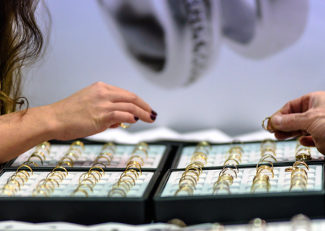President Trump’s Comments on Interest Rates Don’t Bode Well for the Economy
President Trump recently took on the Federal Reserve’s conduct of monetary policy, although not in a good way. Rather than criticizing the Fed for keeping interest rates too low for too long, he criticized the Fed for raising interest rates, complaining that in so doing the Fed has taken away America’s competitive edge against China and is erasing all the gains the economy has made due to the Trump administration’s economic policies.
It’s no secret that the Fed throughout history has done what Presidents demanded of it, but previous administrations have at least kept up the pretense that the Fed is independent. The Fed publicly maintains that is independent, the White House puts pressure on the Fed behind the scenes, and the Fed acts accordingly. That may not be the case anymore going forward.
Despite President Trump’s rhetoric on the campaign trail in which he castigated the Fed for its loose monetary policy and inflationary response to the financial crisis, because of his roots in real estate development he has always been at heart a supporter of low interest rates, as that made it easier for him to do business. With the US economy, artificially pushing interest rates down can provide some economic stimulus in the short term. But that leads to malinvestments in the economy that manifest themselves when the bubble bursts.
The Fed’s solution to bubbles bursting has been to do more of the same, pumping more money into the system to paper over the destructive effects of the last bubble bursting. That’s what we’re seeing today, as the trillions of dollars created by the Fed in the aftermath of the financial crisis have driven up stock markets and asset prices across multiple sectors.
With interest rates still at historically low levels, you would think that there would be nothing for the President to worry about. But interest rates in the EU and Japan are still near-zero, even as the Fed has begun raising rates. It’s that disparity that Trump believes is harming the United States and providing a competitive advantage to the European and Japanese economies.
The danger is that President Trump will put pressure on the Fed to start lowering interest rates again. That danger will become particularly likely if Trump’s tariffs succeed in igniting a trade war that drives stock markets down and depresses economic activity. In that case, Trump might pressure the Fed to lower interest rates in order to give the economy a little boost to counteract the effect of tariffs.
That would be bad news for the economy, which despite continue job growth and economic expansion is still not growing as well as it has in the past. And while it might offer a bit of short-term relief, it won’t do anything to stop the crash that is coming as a result of the Fed’s financial crisis shenanigans. If anything, it might even accelerate it, adding fuel to the fire by continuing to encourage excessive levels of borrowing in all sectors.
If there were ever a time to protect your assets, now is it. With a crash looming on the horizon and the prospect of QE4 looking more and more likely when that crash occurs, conventional financial assets will take a huge hit. Bond yields will spike and stock markets will tank. Gold, of course, stands to perform magnificently, which is why savvy investors are moving into gold already, taking advantage of the momentary dip in prices to strengthen their portfolios. Don’t be left behind when markets crash, act now to protect your savings.


